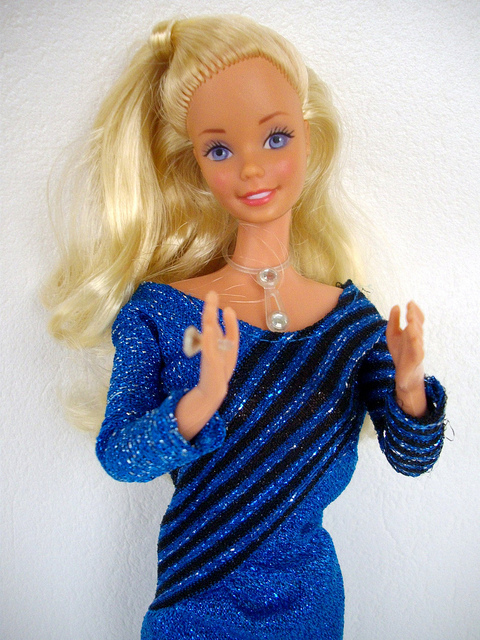It’s crept up on us everywhere: skinny shaming Barbie, putting her down for her unrealistic bodily proportions and long wavy locks.
“She’s giving the wrong impression to children!” we say. “She’s causing low self-esteem!” we preach.
Barbie has been around for decades and suddenly there’s outcry. Where did poor Barbie go wrong? I’ll tell you what—she didn’t. Barbie is the same innocent toy she always has been.
The problem is not with Barbie, video games, television or any of the other toys we allow our kids to play with. The majority of the issues our children are facing have nothing to do with the material goods they get their hands on. Ideas of body perfection are created and developed by the subjective and emotional experiences we create with our children—in our homes and as our relationships play out each day.
Leading by example, and showing our children the things that truly matter in the long run, will build a realistic and sustainable foundation that will shine through their experiences as they grow up.
Spending quality time with our kids, not only as parents, but as siblings, aunts, uncles and mentors, will bring light to the things that are of value in our world: compassion, love, ambition and happiness. Visual appearances have their importance, whether we want them to or not, and teaching our youth that they don’t is doing them a disservice. It’s as unrealistic as Barbie’s waist.
Toys and material objects can play a role in both good and bad self-perception if we allow them to, but what we project out into the world comes from within.
As a child, I had a Barbie collection to die for. I loved using my imagination to create stories and events. Did my mom ever worry about the effect Barbie was having on me? Not at all. Why? The scenarios I created within my Barbie world directly reflected my values and all of the important things I learned as a child.
My mom taught me to be kind to people and stand up for what was right, no matter what. She taught me that people are good and we don’t always understand where someone came from or why someone does what they do, but we have to stay true to ourselves.
These principles were the foundation for the world I created for my Barbies.
My play did not deal with jealousy and anger or resentment and self-loathing. It came from what I knew within me.
Most importantly, my mom taught me this: Barbies are not real. Barbies are toys. Barbies can be used as projections of your imagination; something you use to get away from the real world but they are not real life.
They do not do your homework or make friends at school for you. They are not responsible for your chores and for speaking to your family members with respect. It was that simple!
The problem is taking something that represents a fantasy world and directly correlating it to real life.
We aren’t telling Transformers to tone down the muscles, are we?
It’s a double standard and, as a society, we are using Barbie as a scapegoat for the bigger issue of a lack of involvement and parenting.
The problem today isn’t that kids are suddenly confused about what they should look like and that Barbie should be a realistic goal for their appearance.
The more important issue here is that parents are relying on technology and other devices to teach their kids these valuable lessons. Time without an interruption from a smart phone, tablet or t.v. is rare.
Spending time with the young people in our lives without these distractions will show us how raw and real they are—dying to soak up our knowledge and affection. We can teach them these things from our heart.
While we’re at it, leave Barbie alone! She’s just awesome.
Love elephant and want to go steady?
Sign up for our (curated) daily and weekly newsletters!
Apprentice Editor: Guenevere Neufeld / Editor: Catherine Monkman
Photo: Flickr / Freddycat1



Read 7 comments and reply